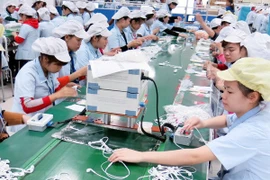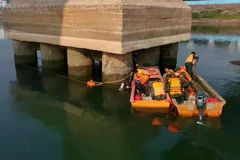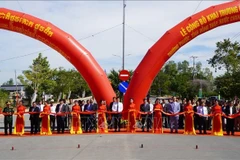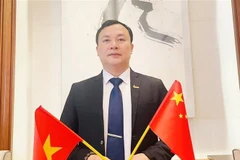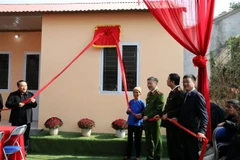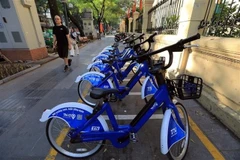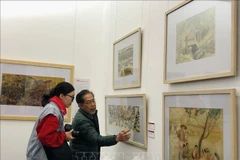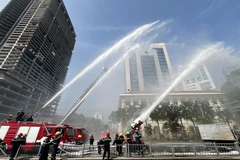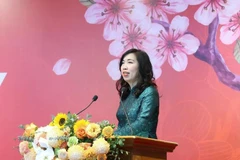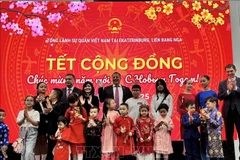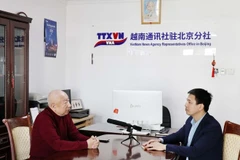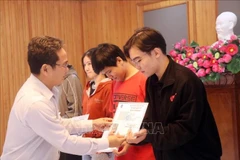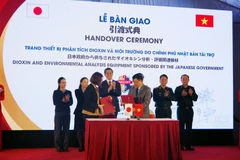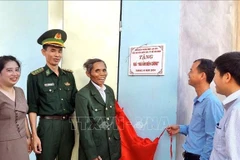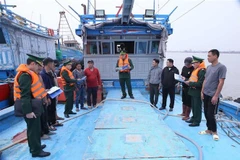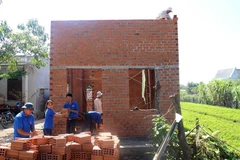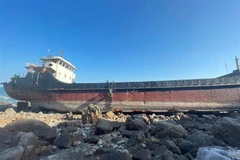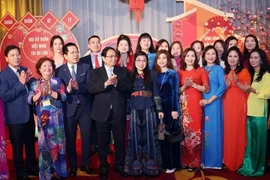 The Vietnam Association of Tourism and associations of tourism in the Mekong Delta, HCM City, and Ba Ria-Vung Tau, Binh Thuan, Binh Dinh and Tay Ninh provinces sign agreements on training and development of human resources in hotel management with the Imperial International Hotel College and the Finance – Marketing University.
The Vietnam Association of Tourism and associations of tourism in the Mekong Delta, HCM City, and Ba Ria-Vung Tau, Binh Thuan, Binh Dinh and Tay Ninh provinces sign agreements on training and development of human resources in hotel management with the Imperial International Hotel College and the Finance – Marketing University. HCM City (VNA) – Practice-based training is needed to create high-quality humanresources, key to improve productivity and the competitive capacityof Vietnam’s tourism sector, tourism experts have said.
Nguyen Huu Tho, Chairmanof the Vietnam Association of Tourism, said Vietnam’s labour productivityremains low compared with other countries.
Singaporeproductivity is 15 times higher than Vietnam, Japan 10 times, and Thailand5 times, he said.
The persistence of theory-focused education and little practical application inVietnam requires enterprises to offer workplace-based retraining programmes fortheir employees, he said at a conference held in HCM City on July 7.
The labour turnover rate in the tourism and hospitalityindustry, which is struggling with a lack of qualified human resources, isrelatively higher than other industries, he said.
Education and training of high-quality human resources in tourism andhospitality needs to offer 50-70 percent of practice time and theremaining 30-50 percent for theory, he added.
Dao Manh Hung, Chairman of the Vietnam Tourism Education Association, said Vietnamis one of the fastest-growing travel destinations in the world.
However, the trainingof high-quality human resources in tourism and hospitality has failed to keepup with the increasing demand for employment.
The tourism sectorneeds about 40,000 more labourers a year, particularly skilled workers andqualified professionals, while the number of graduates is around 15,000 a year,according to the Vietnam National Administration of Tourism.
In HCM City, around 50 colleges and universities offer training courses ontourism and hospitality. But only 60 percent of employment demand is met.
The robust development of upscale hotels and resorts has widened the gapbetween education and employment, Hung said.
There is an abundant supply of students with academic and theoretical educationbut a shortage of skilled personnel, he said.
The Vietnam Association of Tourism has partnered with the ImperialInternational Hotel College to develop a 16-week quality training model ofinternational standards as part of an effort to bridge the gap betweenabundant supply of university graduates and shortage of skilled workers at fourto five-star hotels.
The hotel school modelwhere students are taught and practice at the five-star Imperial Vung TauHotel, with 70 percent of practice time, has been chosen as a pilot model fortraining of qualified professionals in the hospitality and tourism industry.
Luu Thi Huong Hoai, deputy head of the Administration of Tourism’s HotelDepartment, said the hotel school model aims to develop a bettertrained workforce in the hospitality and tourism industry.
At the conference, the Vietnam Association of Tourism and associations oftourism in the Mekong Delta, HCM City, and Ba Ria-Vung Tau, Binh Thuan,Binh Dinh, and Tay Ninh provinces signed agreements on training and developmentof human resources in hotel management with international standards with theImperial International Hotel College and the University of Finance – Marketing./.

